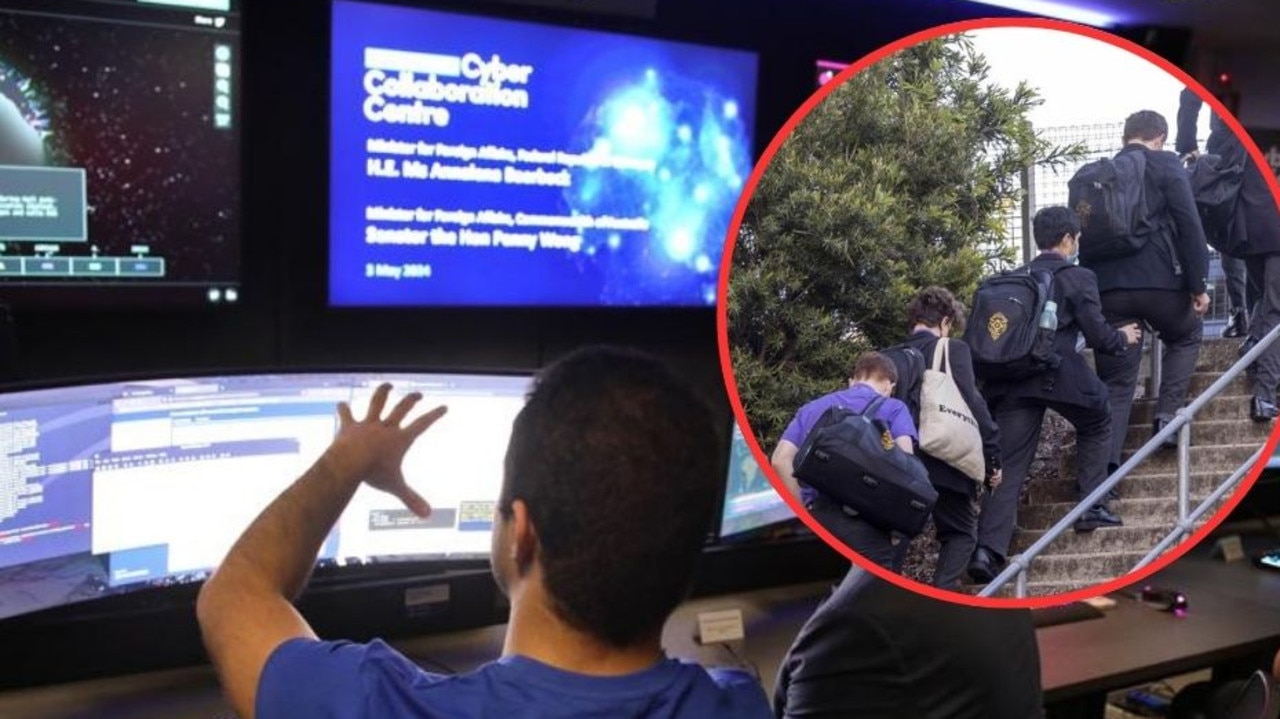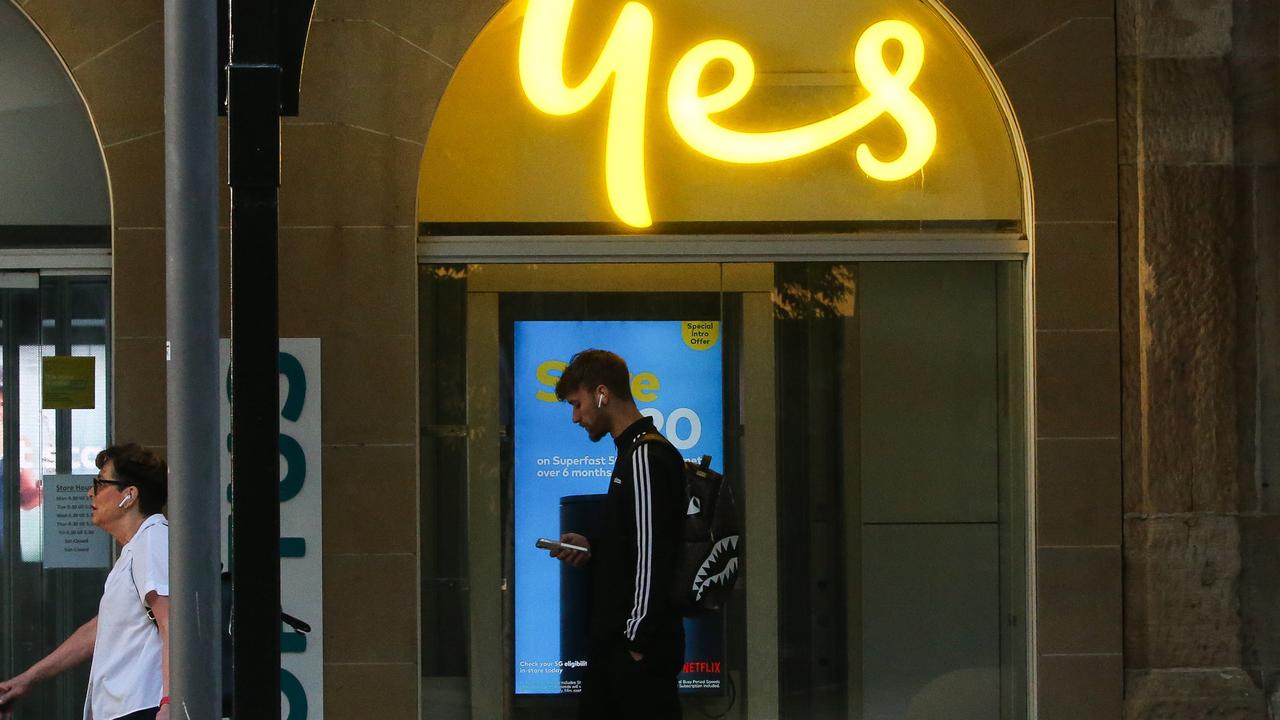‘Creepy’ detail in Chinese beach picture
Viral videos circulating online have drawn new attention to China’s watchful eye.

Security
Don't miss out on the headlines from Security. Followed categories will be added to My News.
Extensive CCTV on a Chinese beach has drawn attention to mass state surveillance in the nation, thanks to a viral video circulating on TikTok.
The footage shot at Hainan, a picturesque island province in southern China, by Louise, a French exchange student, shows the abundance of security cameras lining the sandy shores of Haitang Bay, a popular tourist destination on the tropical island.
Louise, 22, who is currently studying at a business school near Shanghai, shared the footage while on holiday with friends.
She described Hainan as located “all the way in the south, near Vietnam, which explains the great weather,” in an interview with Newsweek.
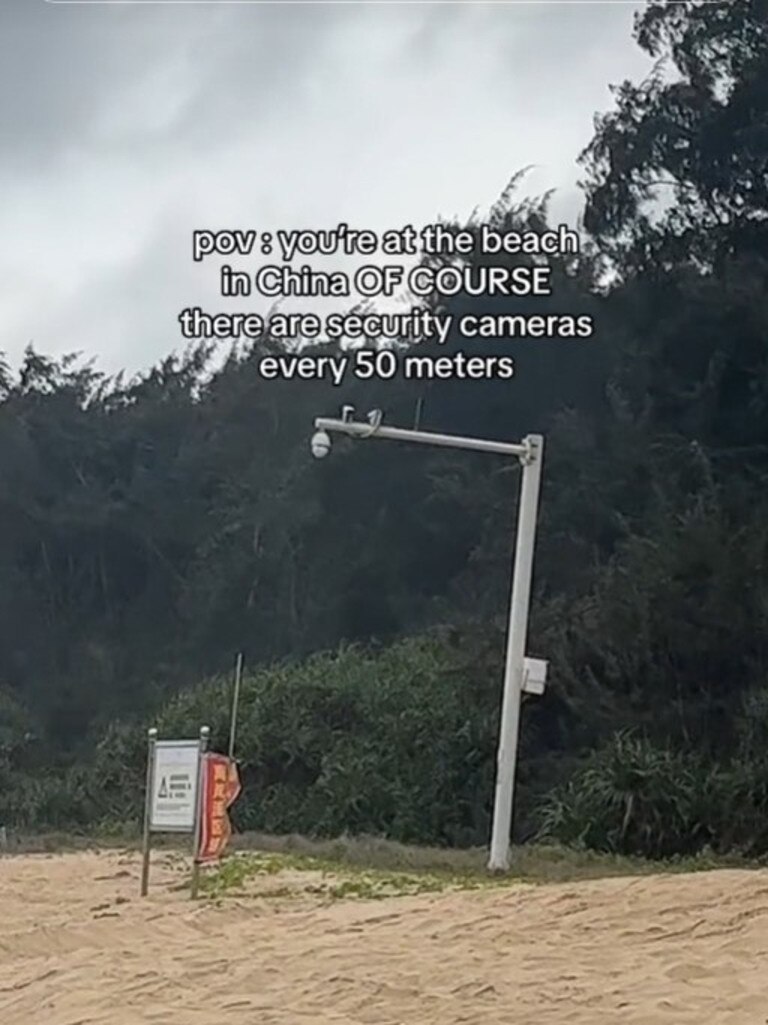
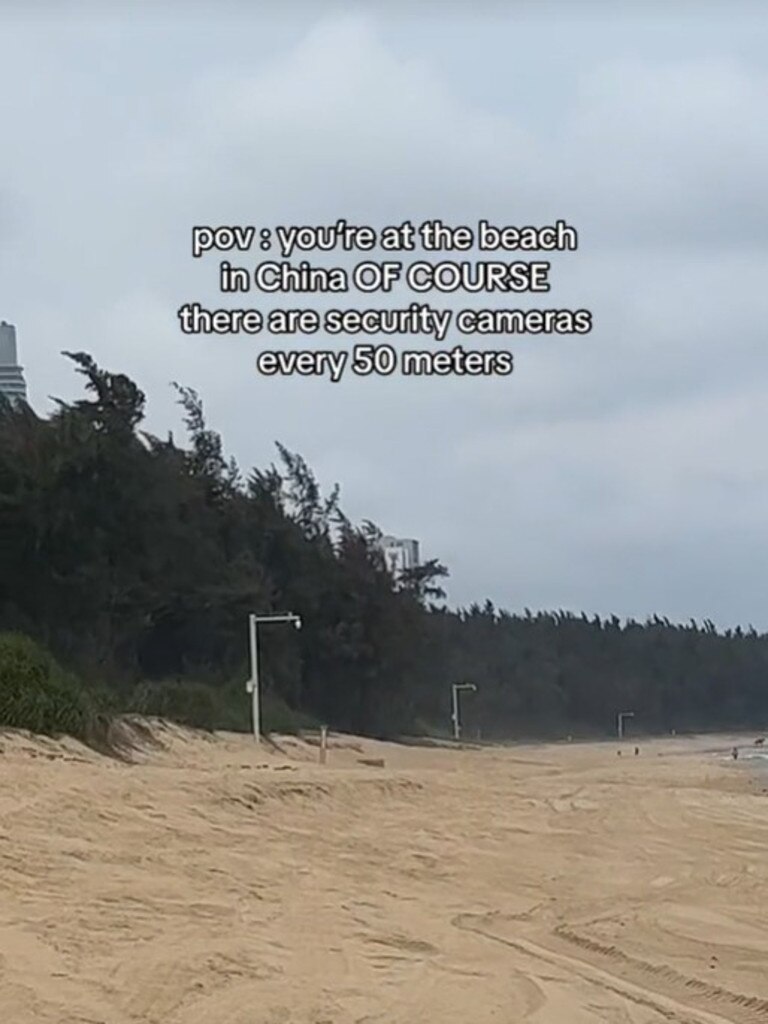
The video shows Louise seated on the beach with lampposts in the background, each topped with what appears to be surveillance cameras. She expressed her surprise at the prevalence of security measures, remarking on the stark differences from her Western upbringing.
“The beach experience in China is truly interesting,” she said.
“So many things are different from my Western culture,” she remarked, adding, “I think it’s important to note I wasn’t complaining about these security cameras.
“China is a very strict and surveilled country, but this does bring a great security in the country that I much appreciate.”

Accompanying the footage is a caption that reads: “We’re at the beach in China of course we aren’t allowed to swim in the ocean.”
Louise clarified to Newsweek that swimming was restricted due to strong winds and currents.
Another video Louise posted shows a camera on what seems like a remote snowy forest trail.
The videos sparked a range of reactions on TikTok. Some said it instilled a sense of safety.
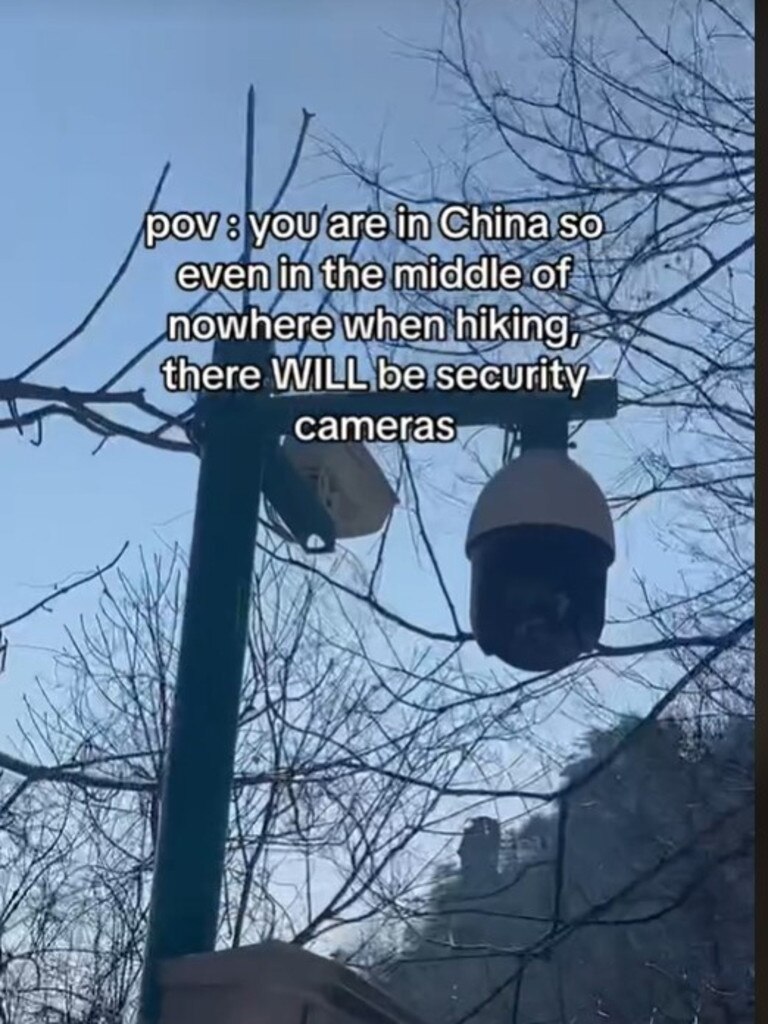

One user commented, “That would make me feel safe (to be honest),” while another remarked, “Nice, so you can leave your stuff without worries, when going for a swim.”
However, not all responses were positive, with some expressing concerns over privacy and surveillance. “I mean … I’d feel safe,” one user wrote, while another stated, “The amount of cameras in China is creepy.”
‘Surveillance state’
The presence of extensive technology on Hainan’s beaches aligns with China’s broader surveillance initiatives it claims are promoting tourism safety and security.
These measures, including the deployment of security cameras, aim to prevent drowning incidents and enable rapid responses to emergencies.
Additionally, Beijing says surveillance technology serves environmental monitoring purposes and acts as a deterrent against criminal activities.
China’s significant investment in AI surveillance technology is highlighted in a 2019 report by the Carnegie Endowment for International Peace.
The report underscores the role of Chinese companies like Huawei, Hikvision, Dahua, and ZTE in supplying AI surveillance technology to numerous countries globally.
Notably, these technologies have been adopted by countries participating in China’s Belt and Road Initiative, a trillion-dollar infrastructure program aimed at enhancing connectivity across continents.
However, China’s surveillance technology boom is not without its fair share of criticism – even seeing the nation labelled the “surveillance state” in best-selling research by Wall Street Journal authors Josh Chin and Liza Lin.
The pair argued that, through increased surveillance, the Chinese government has built a new “social contract” with its citizens.
The book – Surveillance State: Inside China’s Quest to Launch a New Era of Social Control – revealed that China collects more data than other countries and aims to export its model as an alternative to democracy.
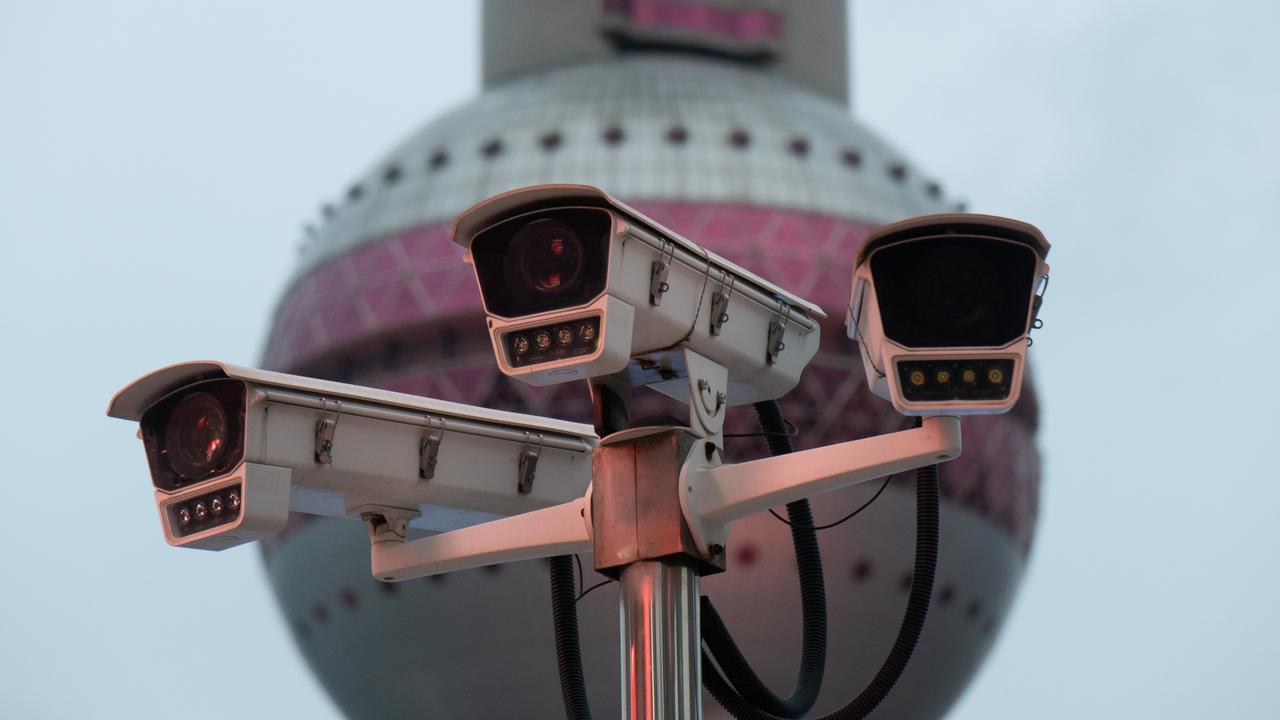
“China is probably the only country out there that hopes to use surveillance to create this techno-utopian state,” Lin said shortly following the book’s release in late 2022.
“And as we mentioned in our research and in the book, China has this ambition to use the data collected to analyse any future threats to its governance and to identify these threats quickly and do something about it, to create an alternative model to what democracy could offer.”
She went on to detail the extent to which the nation is watched by its government.
“I think the difference between China and many other countries is that all these cameras are largely state-owned,” Lin added.
“Unlike in the US, where you have a ton of Amazon ring cameras that are privately owned, a lot of the surveillance cameras that you see on the street in China are owned by government agencies and largely by the Chinese police.
“And beyond access to those 400 million cameras, the Chinese government still has access to about a billion smartphones that the Chinese citizens use.
“And that’s because there are a series of national security and intelligence laws that were put in place in China over the last decade that actually allow the Chinese government to have access to a lot of the information that Chinese tech companies collect.”
Originally published as ‘Creepy’ detail in Chinese beach picture




